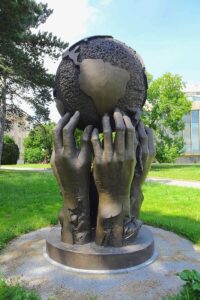Hello readers!
Just wanted to drop a quick note that I’m taking the week off for travel. I’ve been in the Houston, Texas area for a family reunion.
Hope everyone’s having a great week so far. I’ll be back next Monday on the usual schedule!
Alienation, autonomy, and ideology
Hello readers!
Just wanted to drop a quick note that I’m taking the week off for travel. I’ve been in the Houston, Texas area for a family reunion.
Hope everyone’s having a great week so far. I’ll be back next Monday on the usual schedule!

Readers might have noted the ‘philosophy‘ tag among the list of categories on this site. And those who have read those posts noted awhile ago my interest in Epicurean philosophy. In fact, I’m not interested only in Epicurean theory. I’m also interested in applying it in the context of philosophical counseling.
Toward those ends, I’m starting a series of posts on Epicurean philosophy: Epicureanism 101! What you’re reading now is the first post in that series. If you follow along, you’ll see new posts in coming weeks and months with a title that begins with ‘Epicureanism 101.’
This post will cover a basic Epicurean distinction on the nature of our desires.
Enjoy!
Three years ago, I wrote a post about the worst political issue for the GOP and the Democrats. After investigating the topic, I focused on balanced budges for the GOP and gun control for the Democrats.
What made those issues stand out is that there’s a wide gap between generic voters preferences and how strongly voters feel about the issues. Voters like balanced budgets in the abstract. But as soon as you turn to tax increases or spending cuts – how you balance budgets in the first place – voters are far less interested. And while many people like gun control, most have no direct experience with actual gun violence.
But it’s 3 years later. Let’s check in to see whether they’ve learned anything.
Now that we’re well into the season, let’s talk about spring reading! I’ve got a wide range of books on my list for this month. After checking it out, let me know what you’re reading these days.
I had the pleasure of listening to an interview on American Prestige with Nathan J. Robinson, editor of Current Affairs and co-author (with Noam Chomsky) of The Myth of American Idealism. The book – as well as the interview – discusses Noam Chomsky’s views on U.S. foreign policy and leftist politics.
I discussed the book briefly in my January Reading List post, but the interview goes into greater detail. Readers should note that the interview sits behind the American Prestige paywall. That said, I’m a subscriber. And I’d highly encourage readers to subscribe, or at the very least to listen to the free weekly news update. It comes out every Friday morning.
That bit aside, let’s talk about the interview. I think a particular line of questioning from Daniel Bessner gets at key issues of leftist strategy in the 21st century.
© 2025 Base and Superstructure
Theme by Anders Noren — Up ↑